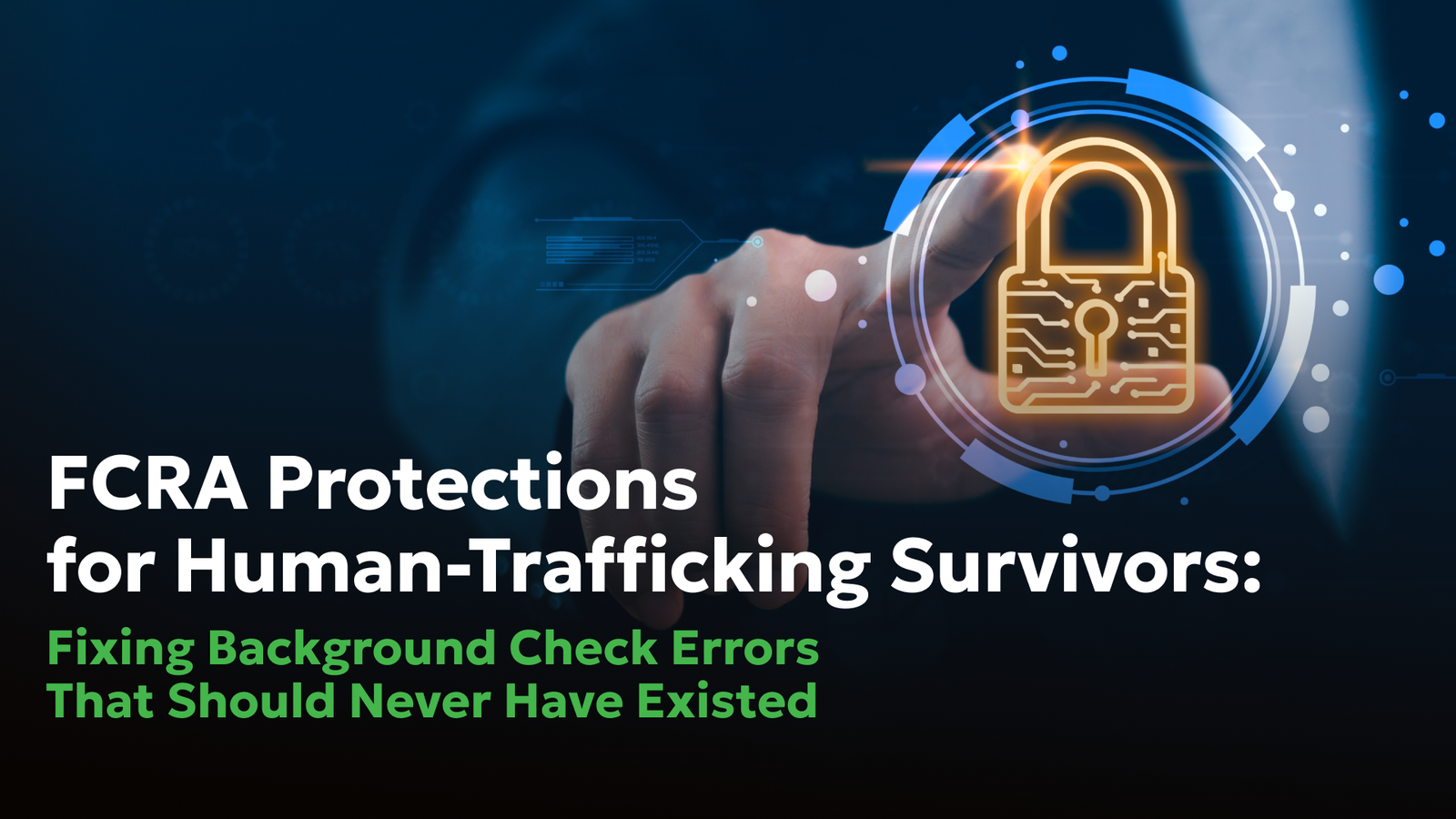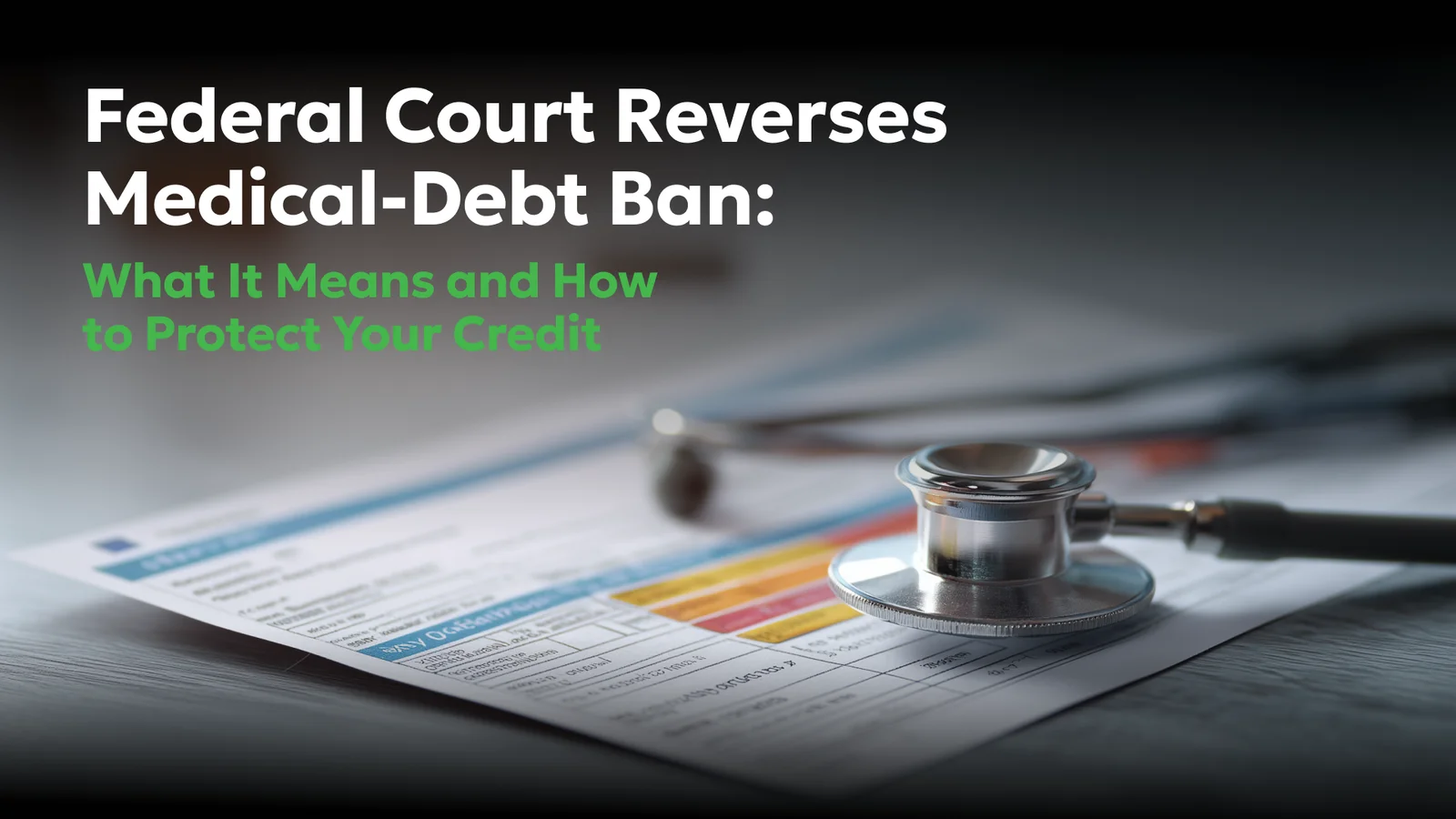Contemporary Information Corporation (CIC) Credit Reports: All You Need to Know
- Blog
- Credit Reporting Inaccuracies
Contemporary Information Corporation (CIC) Credit Reports: All You Need to Know

Facing or have recently gone through a CIC background or credit check? Here’s what to know and how to handle problems.
The Contemporary Information Corporation, or CIC, is a smaller and specialized consumer and background check reporting company. But it still must obey the law and provide accurate reports. When it doesn’t, big problems can and often do arise. Here’s what to know about CIC and how to handle mistakes in your consumer data.
While not one of the big three consumer reporting agencies, the Contemporary Information Corporation (CIC) plays a significant role in the lives of those individuals for whom it prepares credit reports. Like any consumer reporting agency, CIC must obey the rules outlined in the Fair Credit Reporting Act (FCRA) which requires companies to provide fair and accurate reports and a transparent method for obtaining and disputing them.
The consumer protection attorneys at Consumer Attorneys have learned a great deal about CIC. This article provides an overview of the company, potential issues you might encounter with CIC, and how to address inaccuracies and errors effectively.
If you have questions about CIC or credit reports, have identified an error in your credit report, or are currently engaged in a dispute with a consumer reporting agency, please contact us.
The Contemporary Information Corporation
The Contemporary Information Corporation (CIC) has a long history in the credit reporting industry. It was started several decades ago and initially focused on providing credit reports for property managers and landlords. While it has expanded its services to include a broader range of clients and industries, it still focuses on landlords, property management companies, employers, and financial institutions that use CIC reports to screen potential tenants, employees, and borrowers.
CIC is, therefore, a critical component of the decision-making processes in these industries for people who rely on them to give these employers, landlords, property managers, and lenders an accurate report.
Credit Reports
Credit reports are documents that detail an individual's credit history. They include credit accounts, payment histories, outstanding debts, and public records like bankruptcies. These reports are crucial for lenders, landlords, and employers to assess the creditworthiness and reliability of applicants. CIC reports often include detailed rental histories, employment verifications, and credit information. This specialization distinguishes CIC from the larger credit reporting agencies.
How Does CIC Fit Into the Big Three - Equifax, Experian, and TransUnion?
CIC operates alongside the three major consumer reporting agencies (CRAs) or bureaus: Equifax, Experian, and TransUnion. While these big three CRAs dominate the market with comprehensive credit reports used by major lenders, CIC carves out a niche by offering specialized reports tailored to specific industries like property management and employment screening. Although CIC is smaller, it is vital for clients needing detailed information beyond standard credit scores.
When a person i relying on a CRA of any size, an error or inaccuracy in its report will have the same effect on the consumer, regardless of how big the CRA is or how many reports it produces a year.
The CIC Report
The CIC credit report, also called the Contemporary Information Corporation report or the Contemporary Information Corp report, is a comprehensive document that provides detailed information on an individual's credit history, rental history, and employment verification. This report is pivotal for landlords, employers, and financial institutions, as it offers a holistic view of an applicant's background, enabling more informed decision-making.
The FCRA requires consumer reporting companies and screening companies to provide consumers with at least one free report every year. If you anticipate that you will be applying for a new job or apartment in the near future, it might be a good idea to contact CIC and request a copy of your report so you can review it.
Credit History
The credit history section of a CIC credit report is thorough. It encompasses the various and standard components of an individual’s financial history and behaviors. It includes information about credit accounts, such as credit cards, loans, and mortgages, detailing the account type, balance, payment history, and current status. This part of the report highlights any delinquencies, defaults, or collections, providing a clear picture of the individual's creditworthiness. Lenders use this information to assess a borrower’s creditworthiness and the risk of lending money, while landlords evaluate the likelihood of timely rent payments. In some industries, a person’s creditworthiness and financial acumen might play a role in their job so some employers will also request this information.
Rental History
The rental history component of a CIC report is particularly valuable for property managers and landlords. This section lists previous rental addresses, the duration of residence at each location, and the contact information of past landlords. It also includes any reported issues such as late payments, lease violations, evictions, or disputes. By reviewing an applicant's rental history, landlords can gauge their reliability and likelihood of being a responsible tenant. This detailed information helps property managers avoid potential problems and select tenants who are more likely to honor their lease agreements.
One common issue in a CIC report is that these rental histories can be incomplete. There can be little incentive for a former landlord or property manager to voluntarily submit tenant information to tenant screening companies - especially if there were no issues or problems with that tenant.
Employment Verification
Employment verification is another critical aspect of the CIC credit report. This section confirms the applicant's current and past employment, including job titles, employment dates, and employers’ names. Employment verification ensures that the information the applicant provides is accurate, helping employers make informed hiring decisions. It also provides insight into the applicant's job stability and income consistency, which is crucial for both landlords and financial institutions when assessing an individual's ability to meet financial obligations.
Additional Information
Beyond these core components, a CIC credit report might also include other relevant information such as public records and inquiries. Public records can consist of bankruptcies, tax liens, and judgments, all of which significantly impact an individual's creditworthiness. The inquiries section lists entities that have accessed the individual's credit report, indicating the level of interest from potential creditors or landlords. A report can also include education verification.
Ensuring the accuracy and completeness of this report is essential for fair and effective evaluations. This highlights the importance of understanding and addressing any potential errors promptly.
Potential Errors in a CIC Credit Report
Errors in a CIC credit report can occur for various reasons, such as incorrect data entry, outdated information, or mistaken identity. These errors can have significant consequences, including denied rental applications, job opportunities, and credit applications. Common errors include inaccurate credit account information, incorrect personal details, and outdated public records.
As mentioned, you can request and receive a free copy of your CIC report every year. Additionally, if an employer, landlord, or property manager makes an adverse decision about your application based on something it saw in your CIC report, it must tell you so and tell you the specific information upon which it based its decision. If that information is incorrect or incomplete or results from inaccurate or incomplete information, you should contact a lawyer at Consumer Attorneys.
How to Fix Those Errors
If you find errors in your CIC credit report, it is crucial to address them promptly. Begin by obtaining a copy of your report. Carefully review the information for inaccuracies. If you identify any errors, contact CIC to dispute the information. Provide documentation to support your claim and request a correction. It is also beneficial to follow up regularly to ensure the errors are addressed and rectified promptly. A FCRA lawyer can help you with this.
Why It's Important to Fix Errors
Fixing errors in your CIC credit report is very important. Inaccurate information can lead to significant financial consequences, such as denial of rental applications, higher interest rates on loans, denied credit applications, and missed employment opportunities. Errors can damage your reputation, making it harder to secure housing or employment. By ensuring your credit report is accurate, you protect your financial health and reputation, ultimately saving money and opening up more opportunities in the future.
How a Consumer Attorney Can Help
A consumer protection attorney can be invaluable in navigating the complexities of fixing errors in a CIC credit report. An attorney can guide you through the dispute process and ensure that all necessary filings are filed and meet all applicable deadlines. Furthermore, if CIC fails to correct the errors, an attorney can help you file a lawsuit to hold the company accountable. This legal action can maximize the damages you receive because if a CIC error damages you, you should receive compensation for those damages and the negative impact the errors had on your life. Additionally, an attorney can offer ongoing support and advocacy, helping you understand your rights and protect your financial reputation.
Conclusion
The Contemporary Information Corporation provides reports for landlords, employers, and other clients. Errors in CIC credit reports can have serious consequences for individuals. Identifying and correcting these errors is essential for protecting your financial health and reputation.
Frequently Asked Questions
To dispute CIC Credit Reports, obtain a copy of your report. Identify any inaccuracies, then gather supporting documents to validate your claim. Dispute the report directly with CIC by mailing a dispute letter and the evidence you have gathered to CIC via certified U.S. mail. By law, CIC must investigate the claim and respond within 30 days. If they resolve the dispute in your favor they must correct your credit reports and alert anyone to whom they sent that report. You should contact a lawyer at Consumer Attorneys to help guide you through the process.
A variety of standard lending entities including banks, credit card companies, mortgage lenders, and other financial institutions, use a CIC credit score to evaluate the creditworthiness of individuals. Additionally, landlords and property managers may use these scores to screen potential tenants, employers may use them to make hiring decisions, and insurance companies might consider them when setting premium rates. Essentially, anyone involved in lending, leasing, or assessing financial reliability might utilize CIC credit scores to make informed decisions.
Reading CIC credit reports involves understanding several key sections: personal information, credit accounts, credit inquiries, public records, and collections. To read a CIC report, verify everything for accuracy. Review all of your personal information. Confirm each credit account, noting the balance, credit limit, and payment history. Check the list of credit inquiries to see who has accessed your report. Look for any public records, such as bankruptcies or judgments, and review any accounts in collections. Each section provides a snapshot of your financial behavior, helping you to assess your credit health comprehensively.
CIC credit reports typically update monthly, reflecting the latest information provided by creditors. However, the exact timing can vary depending on when lenders, landlords, and property managers report data to CIC. Major updates might coincide with the end of billing cycles, meaning not all accounts will update simultaneously. Regularly monitoring your credit report is crucial to stay informed about your credit status. Some changes, like newly opened accounts or significant credit events, may appear more promptly, while others might take longer to reflect accurately. YOu can request a free copy of your CIC report every year. Do so and review it to make sure it is accurate.


Daniel Cohen is the Founder of Consumer Attorneys. Daniel manages the firm’s branding, marketing, client intake and business development efforts. Since 2017, he is a member of the National Association of Consumer Advocates and the National Consumer Law Center. Mr. Cohen is a nationally-recognized practitioner of consumer protection law. He has a we... Read more
Related Articles




R
ONGS™You pay nothing. The law makes them pay.







